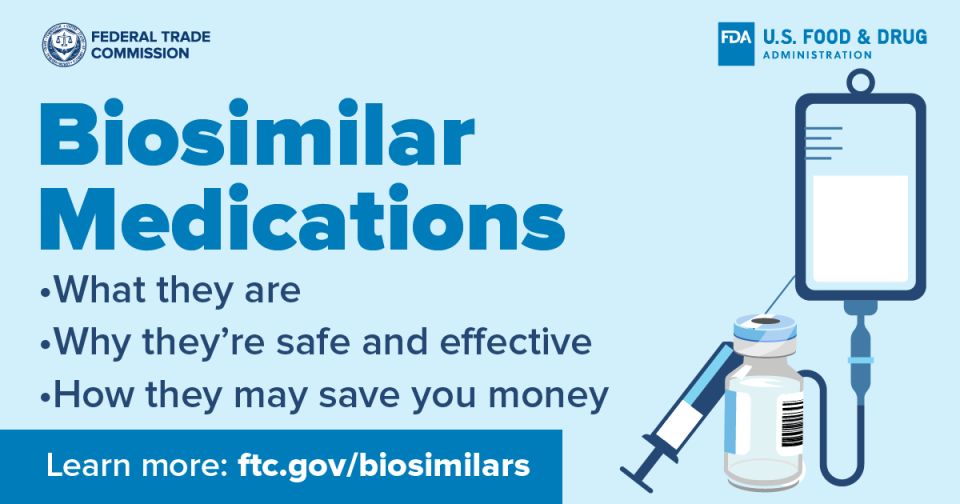If you have arthritis, diabetes, kidney conditions, cancer, macular degeneration, or some chronic skin and bowel diseases, you may be using a biologic medication. Biologics are medications generally made from living sources like bacteria and yeast. These medications are often expensive — sometimes unaffordable. That’s where biosimilars might be able to help.
A biosimilar is a biologic that is highly similar to an original biologic already approved by the FDA. Both products are made from the same types of sources (such as living cells or microorganisms). This means biosimilars are as safe and effective as the original biologic for their approved uses. Biosimilars may also save you money.
If you’re concerned about cost, talk with your health care provider about switching to a biosimilar. To help you have a more meaningful conversation, the FTC and FDA developed the publication, Are you on a Biologic Medication? What to know about biosimilar treatment options. The publication helps answer common questions including:
- Is a biosimilar the same as a generic?
- Should I be concerned if my doctor prescribes a biosimilar?
- What is the difference between a biosimilar and an interchangeable biosimilar?
- Will my insurance cover a biosimilar?
The FTC and FDA also have released a joint Summary Report on the FDA/FTC Workshop on a Competitive Marketplace for Biosimilars held on March 9, 2020.
To learn more, visit fda.gov/biosimilars. For more information on health-related issues and advertising, visit ftc.gov/health.


This raised more questions than it answered. What was the purpose if there is no intent to provide any information?
watching for other comments on this topic.
Dear ftc.gov administrator, Keep up the good work, admin!